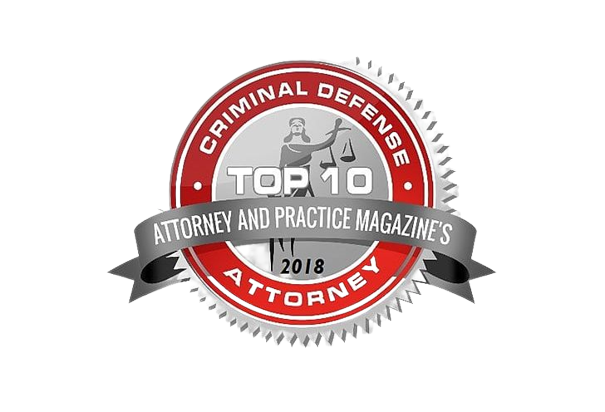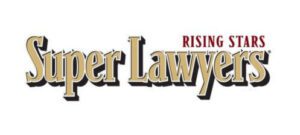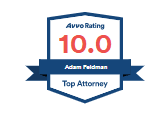Phoenix Counterfeiting Defense Lawyer
A Former Prosecutor on Your Side
Home > Counterfeiting

2023 Super Lawyers

AV Preeminent Rated

Best Law Firm

A+ BBB Accredited
Counterfeiting Defense Attorney in Phoenix, AZ
What is Counterfeiting Under Arizona Law?
The Arizona counterfeiting statute, A.R.S. 44-1453, is aimed at what the law calls “counterfeit marks.” They are defined as unauthorized reproductions of trademarks, trade names, labels, and similar marks, “intellectual property,” or any item or service that is identified by the trademark, tradename, etc. Intellectual property means any mark or design that a person uses to identify his or her products or services.
One of the primary aims of the Arizona counterfeiting law is to prevent the sale and distribution of “knock-offs.” These are imitation goods, often involving designer products. Typically, those products are being offered and sold for far less than the retail cost of the original. The law states that if you sell, or possess, advertise, or possess counterfeit products with intent to sell or distribute, you are guilty of the offense of counterfeiting.
While we are examining Arizona state law, it should be mentioned that federal law also prohibits trafficking in counterfeit goods and services. 18 U.S.C. 2320.
Examples of Counterfeit Products
Request Your Free Consultation
Arizona White Collar Crime Questions Answered by Criminal Lawyer Adam Feldman
If you walk down the street in many cities, you can see people offering products of well-known companies and designers for a price that is far less than you might expect, based on prices you may see in stores or on-line. By and large, these goods are fakes, made to look like the original through the copying of the design, trademark, label or similar identifying characteristics. Here are some of the more common examples of counterfeit goods:
- Handbags. The most seized counterfeit goods in the United States are handbags and wallets. It could be a Coach bag, a Hermes bag or similar named product that might be sold for hundreds of dollars, when the retail cost of the real thing is many times that amount.
- Watches. We have all seen “Rolex” watches being offered for sale in a non-traditional setting (perhaps a street corner) for $50 or $100 dollars. The cost of the real version of the watch is often in the thousands. Similarly, fake designer jewelry is one of the most prevalent counterfeit items.
- Wearing apparel and accessories. These items constituted 18% of all counterfeit items seized in the last couple of years.
Other frequently sold counterfeit products include computer parts and accessories, eyeglasses, pharmaceuticals, consumer electronics (including computers), and footwear.
Classification of Counterfeiting in Arizona
Counterfeiting is generally classified as a class 1 misdemeanor in Arizona. However, If you have a prior conviction for counterfeiting, you will be charged with a class 6 felony. You can also be charged with a felony if there are 1,000 or more items bearing a counterfeit mark, or if the value of all the goods at issue is $10,000 or more.
Award Winning Criminal Defense








Defenses to Counterfeiting Charges
The Arizona counterfeiting law is aimed not at consumers, but at sellers and manufacturers of fake products. If you purchase a fake Rolex, and strongly suspect it is counterfeit, your possession of the product alone is not enough to fill the requirements of the statute. Since you purchased the watch for your own use, you do not have the intent to sell or distribute it. Even if you possess, for example, a dozen or more of these items, the state must prove beyond a reasonable doubt that you possessed the products (a) knowingly and (b) with intent to sell or distribute them. In the absence of sufficient proof of these elements, you are not guilty of the offense. Note, however, that possession of 26 or more counterfeit items raises a presumption that you intended to sell or distribute the goods, although that presumption is rebuttable, and may be challenged by the defense.
Additional defenses include mistake of fact (believing that the goods were authentic), asserting that the trademark or tradename was not violated, and others.
Phoenix Counterfeiting Defense Attorney
Always remember that you are innocent until proven guilty beyond a reasonable doubt. Defenses to these charges do exist, and the right Phoenix criminal lawyer will be able to develop any defenses that may be available. If you are charged with counterfeiting, speak to an experienced Phoenix counterfeiting lawyer. Email us or call The Feldman Law Firm for a free consultation.
Criminal Law Firm Near You
Schedule a Consultation
Call us 24/7 at 602-540-7887 or fill out the form below to receive a free and confidential initial criminal defense consultation.



